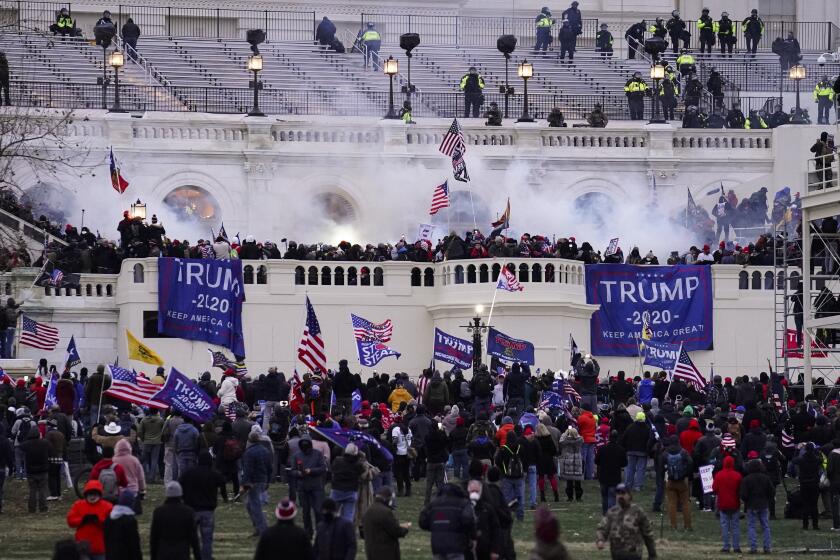Justices Close Book on ‘80s Lawsuit Against Abortion Protesters
The Supreme Court ended a 20-year-old lawsuit against militant antiabortion groups Tuesday, ruling unanimously that their use of “physical violence” outside clinics did not violate anti-racketeering laws.
The decision marked the third time this case had been decided by the high court and, this time, the justices made sure it would be the last.
The impact of the ruling will be limited, however, because a federal law enacted in 1994 makes it illegal to block entrances to an abortion clinic.
The lawsuit that ended Tuesday began during the abortion clinic bombings in the 1980s. At the same time, antiabortion groups such as Operation Rescue employed “human blockades” to try to stop pregnant patients from entering clinics.
Searching for a legal weapon to combat such tactics, the National Organization for Women sued Operation Rescue and its leaders for violating the federal anti-racketeering law. This law incorporates other federal measures, including the laws against robbery and extortion.
The Supreme Court allowed this suit to go forward in 1994, and a jury in Chicago ruled that the protesters had used force and, on occasion, violence to prevent patients and staffers from entering clinics.
A judge assessed damages against Operation Rescue and issued a nationwide order forbidding its members from blocking clinics.
Three years ago, the high court appeared to reverse course. It ruled that the protesters did not engage in “extortion” when they blocked clinics because they were not seeking to take over these businesses.
The justices sent the case back to Chicago, apparently assuming it was over. But a U.S. appeals court there said that because violence was used on several occasions, the lawsuit could continue.
In Tuesday’s ruling, the justices said they meant to end the case entirely. Because the protesters had not engaged in extortion, they did not violate the anti-racketeering law in the first place, the court ruled.
While the lawsuit was languishing in the lower courts, Congress passed the Freedom of Access to Clinic Entrances Act of 1994. It makes it a crime to block entrances to health clinics. It also permits clinic operators to sue if their rights under the law are violated.
More to Read
Sign up for Essential California
The most important California stories and recommendations in your inbox every morning.
You may occasionally receive promotional content from the Los Angeles Times.











